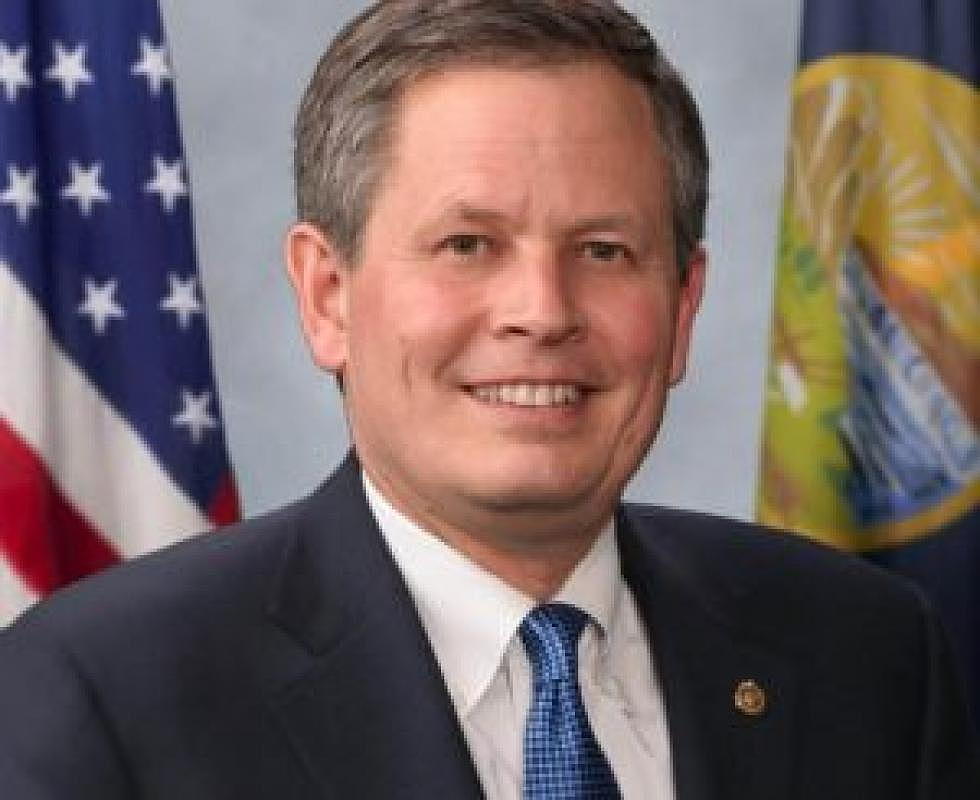
Daines questions language, findings of UM poll on wilderness study areas
Sen. Steve Daines this week questioned a University of Montana poll that found widespread support for keeping the state's wilderness study areas protected under wilderness status.
The poll, released on Monday, was conducted by Republican pollster Lori Weigel of Public Opinion Strategies and Democratic pollster Dave Metz of FM3 Research on behalf of UM.
But Daines doesn't buy the results, saying the survey was misleading in both tone and content.
“This was not a credible survey – it was a push poll,” Daines spokesperson Breanna Deutsch said in an email. “Rather than present objective facts from two sides of an argument, the authors push polled the phony and misleading arguments promoted by radical environmental groups. The lack of objectivity and fact checking unfortunately undermines the legitimacy of the effort.”
Among other issues, the poll quizzed respondents on the state's wilderness study areas and found that 57 percent would prefer to keep them protected under wilderness status.
That particular finding ran contrary to legislation proposed by Daines, who introduced a bill earlier this year to remove wilderness status from five study areas covering around 450,000 acres.
Rep. Greg Gianforte introduced a similar bill that would do the same on 29 study areas spanning 700,000 acres.
“These public lands are accessible to hunters, anglers, hikers, and others on foot and horse, and allow grazing and motorized vehicle use in some areas, but not mining or logging,” the poll stated. “There are proposals in Congress that would eliminate protections for 29 wilderness study areas in Montana. That would potentially expand motorized recreation, oil and gas drilling, or industrial development in nearly 700,000 acres.”
The poll went on to ask respondents what they would like Congress to do, and it gave them three options. Around 11 percent wanted to eliminate protections in all 29 study areas, and 24 percent wanted new protections for some areas and not others.
Roughly 57 percent wanted the areas kept as they are.
But Daines said it was a false claim to say “proposals in Congress” would eliminate protections for the 29 wilderness study areas. His bill does not eliminate protections, he said, but rather changes their status.
“Sen. Daines’ bill does not eliminate protections for wilderness study areas impacted in his bill,” Deutsch said. “These areas will remain protected by laws and rules like the Endangered Species Act, National Environmental Policy Act, and the Roadless Rule and other environmental laws.”
Deutsch said it was also wrong for the poll to suggest that the proposed legislation would potentially expand motorized recreation, oil and gas drilling or industrial development on 700,000 acres.
She said Daines' bill to lift the wilderness study designation doesn't allow oil and gas drilling, nor does it allow industrial development.
“These uses will continue to be severely restricted due to the presence of the Roadless Rule,” Deutsch said. “Asking a question about 'eliminating protections' or 'keeping as they are' is entirely misleading, given the false information provided in the lead-in.”
Rick Graetz, a geography professor at UM who announced the findings on Monday, said the poll has been conducted for each of the past few years and never has Daines or Gianforte raised concerns over the findings.
Only now, with their legislation on the line, are they attempting to cast doubt on the poll's results, Graetz said.
“He (Daines) zeroed in on one question because it showed Montanans don't agree with them,” Graetz said Thursday. “This was a poll of people from both parties conducted by both a Republican and Democrat, both very credible people.”
Graetz took offense with Daines' suggestion that the poll presented misleading arguments on behalf of “radical environmental groups.” The poll was commissioned by the university's Crown of the Continent and Greater Yellowstone Initiative.
The initiative works to promote science focused on the region, as well as its history, stories, photographs and books.
“As a public university, we have a responsibility to share knowledge, research and findings of fact with the public,” Graetz said. “If they don't think it's important to hear what Montanans have to say, they shouldn't even be in Washington.”
The poll also found that 77 percent of respondents believe community input is very important to the future of Montana’s wilderness study areas. Over the past few months, some have suggested that Daines and Gianforte skirted the public process before introducing their bills.
But Deutsch said the recommendations in Daines' bill did receive public input. They also had to meet two criteria, including support for release from the local community and not recommended for wilderness by the Forest Service.
“The senator has received support from all of the counties in which the WSAs are contained,” she said. “He has had countless meetings with local stakeholders over the years and their feedback will continue to guide the planning process – a public process – going forward.”
